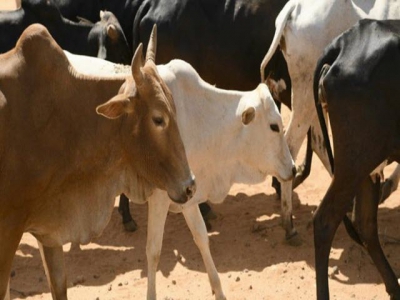Researchers weigh global cost of animal diseases

In developing countries, disease kill up to half of all livestock, reducing nutrition, trade and prosperity.
Helping address the challenge of animal disease, research at Washington State University supports the new Global Burden of Animal Health Program. Photo: provided by Washington State University
Across the globe, families depend on livestock animals for milk, meat, eggs and even muscle power, but when a valuable cow or sheep gets sick, farm families face a stark burden affecting not just the herd’s survival but human health and also face potential losses for years to come, according to an announcement from Washington State University (WSU).
National agencies and nonprofits have long sought a clear picture of how animal disease affect people.
Now, scientists at WSU are helping launch the new Global Burden of Animal Diseases Program to shed light on how animal diseases affect not only animal productivity but human lives and economies.
“Every country in the world deals with the burden of animal disease, and for many, our empirical evidence indicates that burden is, unfortunately, quite large,” said Thomas Marsh, distinguished professor of agricultural and resource economics in the WSU School of Economic Sciences and adjunct researcher in the Paul G. Allen School of Global Animal Health.
“There’s a huge gap in our knowledge of the real costs of animal disease — to our livestock economy, global trade and to human health and prosperity,” Marsh said. “We’re trying to fill that gap.”
Devastating diseases like East Coast fever (ECF), a protozoan parasite that breaks out frequently and is often fatal to cattle, are estimated to kill as many as half of all livestock in developing countries, but the real number is unknown, the university noted.
Some disease outbreaks have a chilling effect on trade across the world, with losses in the hundreds of millions of dollars — a significant part of the gross national product for some countries. Disease shuts off trade and drastically affects prices, depressing profits for farming households.
“When the Masai people of East Africa lose a cow to ECF, they lose the milk they live on, directly reducing nutrition for that family,” Marsh said. “Sick cattle can’t pull or plow, so farmers can’t haul a load or put in crops. Animals are an investment, and once lost, they no longer provide that income over time.
“Disease prevention works the other way, as well,” he said. “We’ve found that households who vaccinate their livestock spend more on education. So, from trade to nutrition to education, animal health has intergenerational impacts on households, especially in the developing world.”
Through social measurement using country-specific data sets, surveys, field work with livestock owners and partnerships with government and private agencies, the Global Burden project takes a systematic approach to gathering data on markets and diseases that affect cattle, sheep, pigs, poultry and other livestock, WSU said, adding that the project will create "the clearest picture yet of the true costs on households" and provide insight and awareness for treatment and prevention.
International effort
Launched at a 2018 workshop by scientists from the University of Liverpool, Murdoch University, University of Zurich, University of Washington, U.N. Food & Agriculture Organization, WSU and several independent consultants, the 10-year project has received initial funding from the Bill & Melinda Gates Foundation and the World Organization for Animal Health, the announcement said.
Program leader Jonathan Rushton, professor of animal health and food systems economics at the University of Liverpool, and nine other co-founders that include Marsh, unveiled the project in the latest issue of The Lancet.
“We’re not only advancing understanding of the trends and challenges in animal health and disease; we’re helping to find the most effective and efficient means to reduce the burden of disease, ultimately safeguarding human health and prosperity,” Rushton said.
“In the fight to curb the impact of animal disease on human health and welfare, WSU brings a lot of strengths to the table,” said Tom Kawula, director of WSU's Paul G. Allen School for Global Animal Health. “For more than a decade, students and faculty like Dr. Marsh have worked to understand how diseases like [foot and mouth disease], ECF or West Nile virus spread and harm livelihoods and communities, from Africa to the U.S. That expertise, combined with our partnerships around the world, helps us gather data and build models for life-changing results.”
“We have the chance to make a big difference not only in developing countries but also in the developed world,” said Marsh, who will lead WSU efforts to gather economic data throughout the project.
“Outbreaks can happen anywhere, and we need to know how efficiently deal with them,” he added. “By understanding the real impacts of diseases, we can stop them from being such a terrible burden.”
Related news
 Bovine mastitis treatment marks 'significant progress'
Bovine mastitis treatment marks 'significant progress' Animal health scientists are making significant progress on mastitis management, which is responsible for up to 85% of the antimicrobials used in the dairy
 Vitamin blend, β-carotene may boost grazing cattle pregnancy rate
Vitamin blend, β-carotene may boost grazing cattle pregnancy rate Adding a blend of β-carotene and vitamins may improve cattle pregnancy rates for an initial round of fixed-time artificial insemination, say researchers.
 Prenatal nutrition may determine long-term outcomes in beef cattle
Prenatal nutrition may determine long-term outcomes in beef cattle Limiting nutrition to pregnant cows, may mean long-term effects for calves and lead to ways to improve cattle nutrition in the future, say researchers.